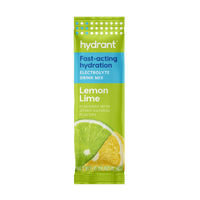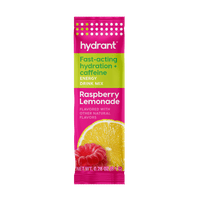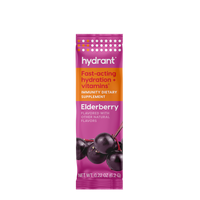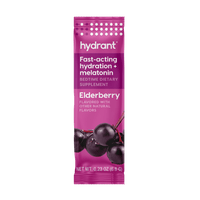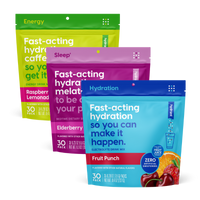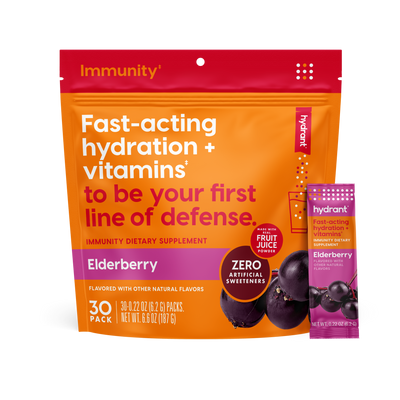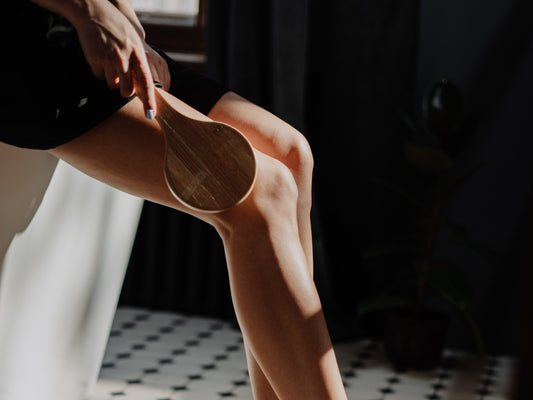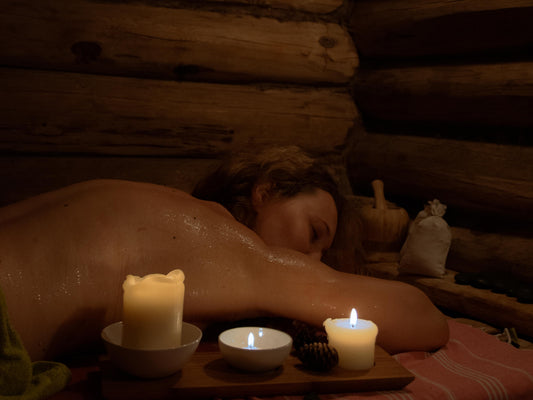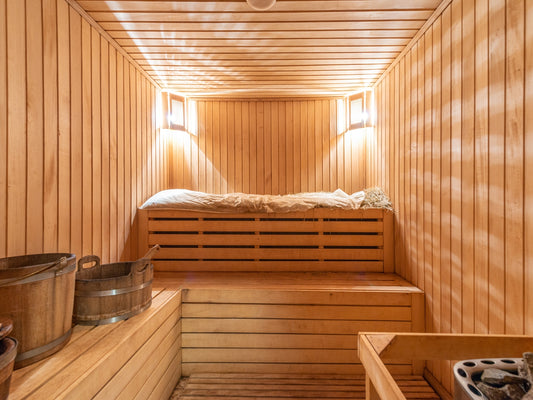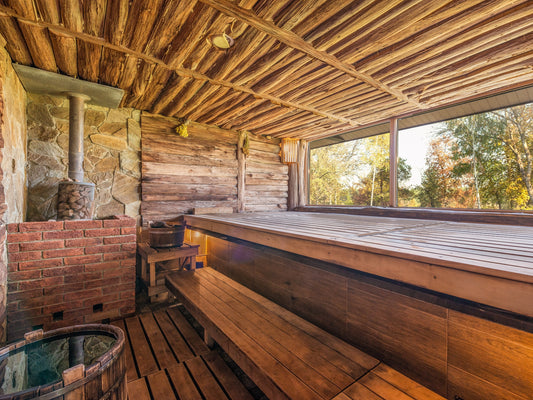What’s not to love about summer? The warm weather, beach trips, and the longer days are just some of the great joys of the season. But one thing that unfortunately comes with the summer season is sunburns. While we can protect ourselves from the sun’s ultraviolet light by wearing sunscreen, clothes, and finding shade, we still may get burned during these sunnier months. So it’s helpful to understand the important relationship between hydration and sunburns.
What is a sunburn?

Sunburns are caused by prolonged exposure to ultraviolet light, regardless of whether it is natural or artificial. There are three types of Ultraviolet light: A, B, and C. Ultraviolet A is a form of solar radiation that is typically associated with the aging of the skin and Ultraviolet B is what we associate with sunburns. While Ultraviolet C is mostly absorbed by the atmosphere, both ultraviolet A and B are associated with the development of skin cancer.
The good news is that our skin has a way to protect the body from the ultraviolet light—melanin. This is the dark pigment in the skin’s outer layer (also known as the epidermis) and it gives you your normal skin color. When your skin is exposed to ultraviolet light, the suntan you get is your body’s way of creating a natural shield to the rays. This works to prevent sunburns and skin damage.
But, melanin isn’t a perfect shield against the harsh rays. So, eventually, exposure to ultraviolet light will cause your skin to burn.
If you have a lighter skin tone, work or spend a significant amount of time outside, regularly expose yourself to ultraviolet light, and/or take medications that increase chances of burning, you are more likely to experience sunburns. ¹
What happens when I'm sunburned?
If you’ve ever experienced a sunburn, you are likely familiar with the painful, red skin that feels hot to the touch. But other symptoms associated with sunburns are itching, swelling, fluid-filled blisters, headaches, fevers, nausea, and fatigue. ¹
When your skin gets burned, it is actually a radiation burn caused by the ultraviolet rays of sunshine that damage the DNA located in your epidermis.
The photons or particles that transmit light, from ultraviolet A rays can interact with the skin and damage the proteins, membranes, and DNA. Conversely, photons from ultraviolet B rays are absorbed by the DNA and this extra energy can lead to incorrectly linking DNA. These rays of sunshine stop accurate DNA replication and as a result many mistakes are made and cells are responsible for trying to fix them. However, when there are too many errors, the cell can become overwhelmed causing it to start to self-destruct; removing cells that can’t be replicated safely.

Once DNA damage is detected in the top skin layer cells, they produce molecules that attract immune cells. This leads to the blood vessels in the skin to leak into spaces between cells and other structures. This extra fluid and the resulting swelling is what causes the red and painful skin that is hot to the touch.
This process of immune cell invasion starts even when you are still in the sun, but it increases an hour after you leave the rays developing redness and pain as the process peaks about 24-48 hours later.
Some of these immune cells clean up after the self-destructing skin cells while other immune cells release chemicals that can cause more damage to the weakened skin cells. These actions can initiate a sort of allergic reaction that makes you feel itchy.
When the inflammation starts to decline, the new cells are grown quickly to replace the dead ones. This is what causes post-sunburn peeling. The old cells are quickly being shed to make room for the new ones.
Finally, the DNA damage cues the cells in the skin’s upper layer to signal the production of melanin. This is why you might get a tan after the sunburn has healed. The melanin shields the skin from future exposure. However, this tan is only as effective as SPF 2 sunscreen, and should not serve as a replacement for any future protection.
Unfortunately, after the sunburn, all you can do is wait for the skin to heal. However, you can manage the symptoms by taking over-the-counter medications, applying home remedies, and drinking plenty of water. ²
What is the relationship between dehydration and sunburned skin?
Your skin is a living organ and when you are dehydrated, it prevents your ability to heal. And when your skin becomes irritated or burned, it loses water with more severe burns even causing intense dehydration.
When you get sunburnt, staying hydrated can significantly lessen your symptoms and promote healing. Sunburns draw fluid to the surface of the skin and away from the body. So, in order to heal properly and quickly, you need to constantly replenish your lost body fluids and electrolytes. ³
What’s more, dehydration can make your skin more vulnerable to ultraviolet light. As a result, you are more likely to become sunburnt in the first place if you don’t drink enough water. Keep an eye out for common systems of dehydration: lightheadedness, feeling thirsty, dry mouth, fatigue, and less frequent trips to the bathroom if recovering from a sunburn. ⁴ ⁵
How might an electrolyte drink mix, like Hydrant, help?

Your body constantly needs fluids and essential minerals (like sodium, potassium, calcium, bicarbonate, magnesium, chloride, and phosphate) to keep your body working properly.
Dehydration happens when you lose more fluid than you take in, resulting in your body not having the necessary water and fluid requirements for normal functions. ⁶
When you’re dehydrated, you need to replenish your fluids and electrolytes as fast as possible. You can drink lots of water, but your body also needs electrolytes. Electrolyte drinks provide you with fuel in the perfect quantities so you don’t feel nauseous.
A hydrating drink mix, like Hydrant, provides you with the precise balance of electrolytes to help hydrate you fast to help your body get back to where it needs to be so you can get ready to head back outdoors quicker. Just don’t forget your sunscreen! ⁷
Final thoughts
You can do everything right, sit in the shade, wear sunscreen, and cover your body, but if you aren’t getting enough fluids, you’re not going to feel your best. In the heat, your body is losing fluids and essential salts faster than it would when you’re not exposed to the warm air, which means that you should be drinking more.
Make sure you’re prepared for a day in the sun by packing water (don’t forget your Hydrant!) and sunscreen so that you can make a good beach day, a great beach day.
